Could the Moto G Stylus be like a budget Samsung Galaxy Note 10?
How does the budget Moto compare to the master Galaxy Note 10?
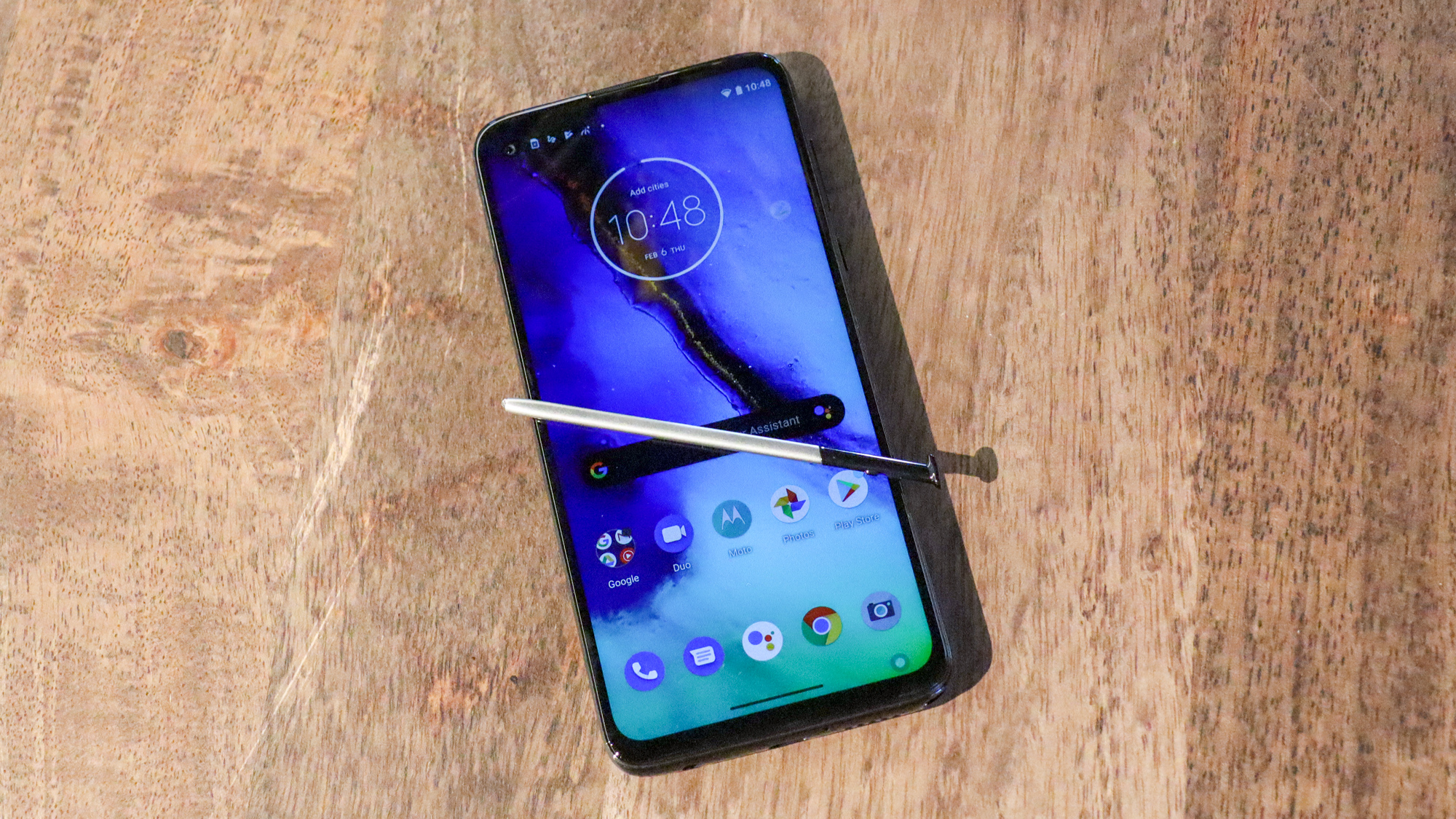
Sign up for breaking news, reviews, opinion, top tech deals, and more.
You are now subscribed
Your newsletter sign-up was successful
The Moto G Stylus is the first mainstream phone to pack a stylus in years – aside from, of course, the Samsung Galaxy Note 10 and its predecessors. The comparison is inevitable.
But given the vast difference in price and specs, we’re inclined not to put them head-to-head in a typical ‘versus’ fashion. Instead, we’ll answer a better question: is the Moto G Stylus a bona fide budget Samsung Galaxy Note 10?
At CES 2020, Samsung announced the Note 10 Lite, a cheaper version of the flagship - but that phone isn't widely available, and even at its discounted price, is twice the cost of the Moto G Stylus. If that changes, we'll re-evaluate this match-up.
The short answer: yes it seems to be... for the most part. There are certain perks you just don’t get at the budget end of the spectrum. But there are also particular differences between Motorola and Samsung's approaches that make them less similar by phone philosophy.
Don’t worry, we’ll explain that in full later on. First let’s get the obvious comparisons out of the way to where they align – then we’ll get to how they differ.
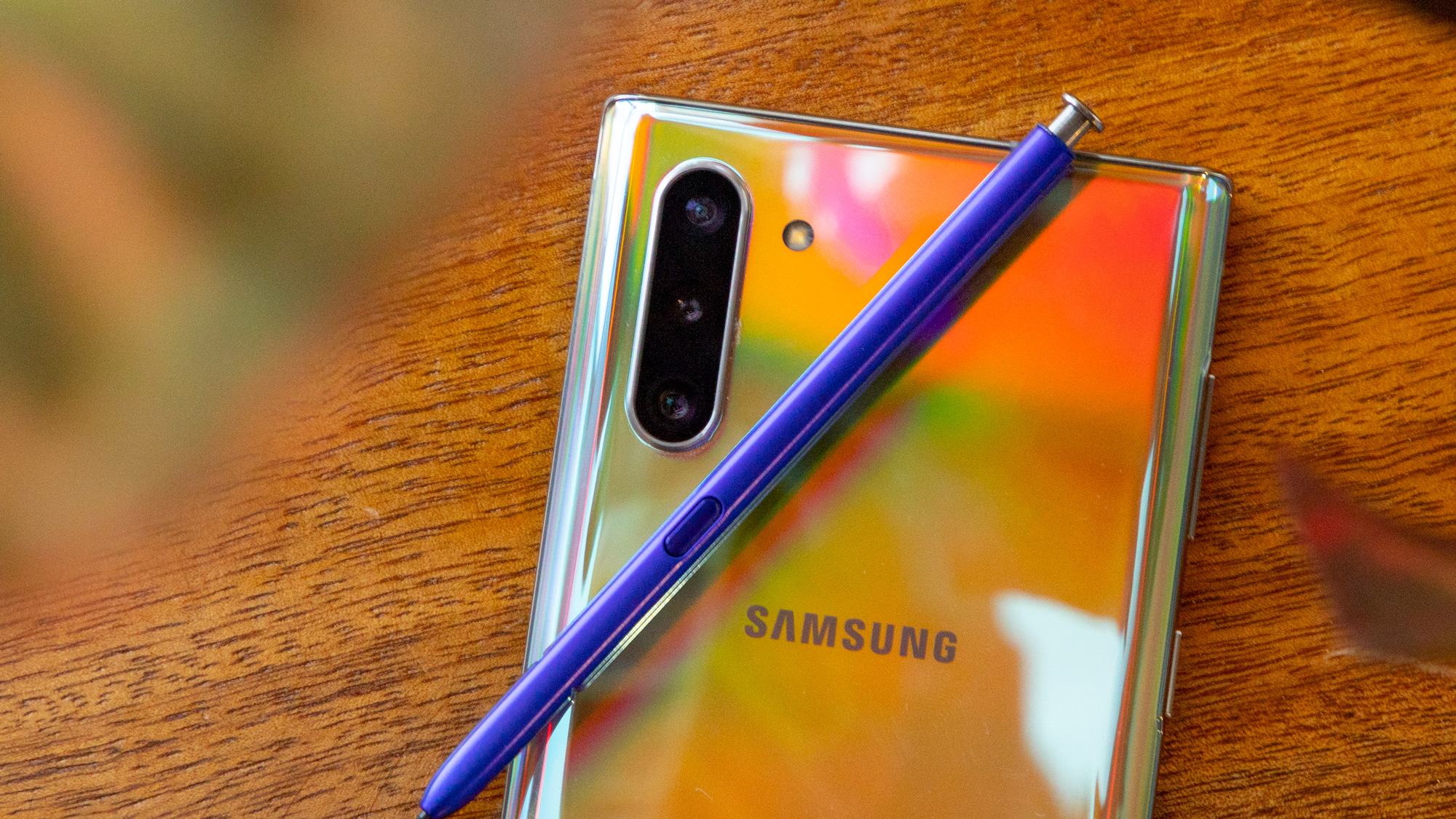
The Galaxy Note 10's S Pen - note the button in the middle.
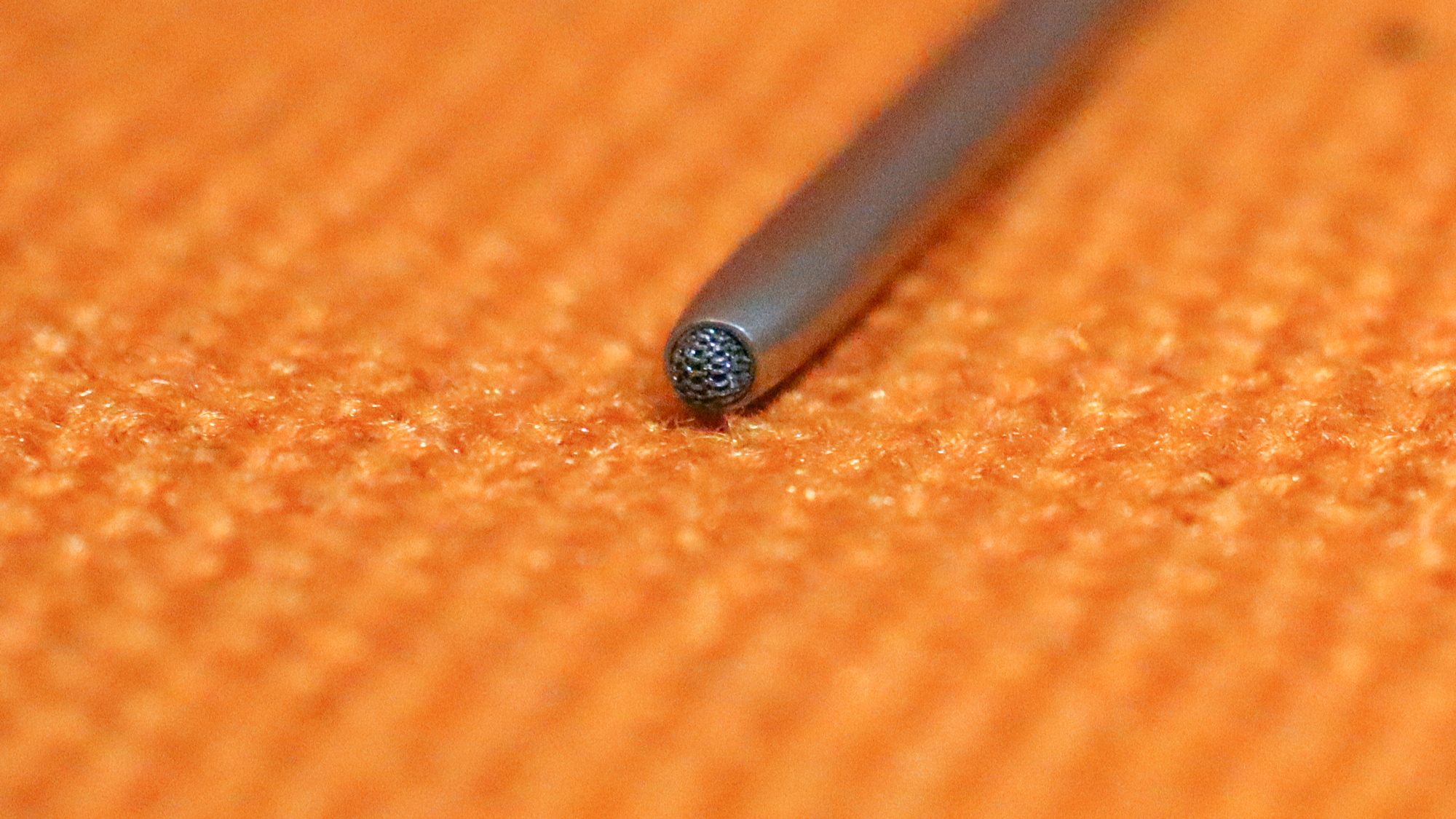
The Moto G Stylus' stylus...and its mesh tip.
But they’re both stylus phones, right?
Yes, both phones have styluses, but they work a bit differently due to hardware choices and software interactivity.
As the gold standard, the Note 10's S Pen leads the way in functionality. It rests flush to the edge when inside the phone, and retrieving it is a slick action – push and it clicks in snugly, push and it pops out.
It’s an accurate stylus, and uses Bluetooth for its extra functionality: the button can operate like a remote shutter for the main phone’s photography, or you can press it for gesture controls that, admittedly, are often too erratic to rely on.
Sign up for breaking news, reviews, opinion, top tech deals, and more.
The Moto G Stylus’ accessory is an analog tool, simply working as a capacitive stand-in for a finger. It has no buttons, no remote functionality, and sits securely in the phone after pushing it until its handle-mounted nibs lock into place.
Pulling it out requires yanking on the hooked tip which sticks out of the phone, but it requires so much force that an errant pocket or string won’t catch and yank it out.

Moto G Stylus...writing even in the snow
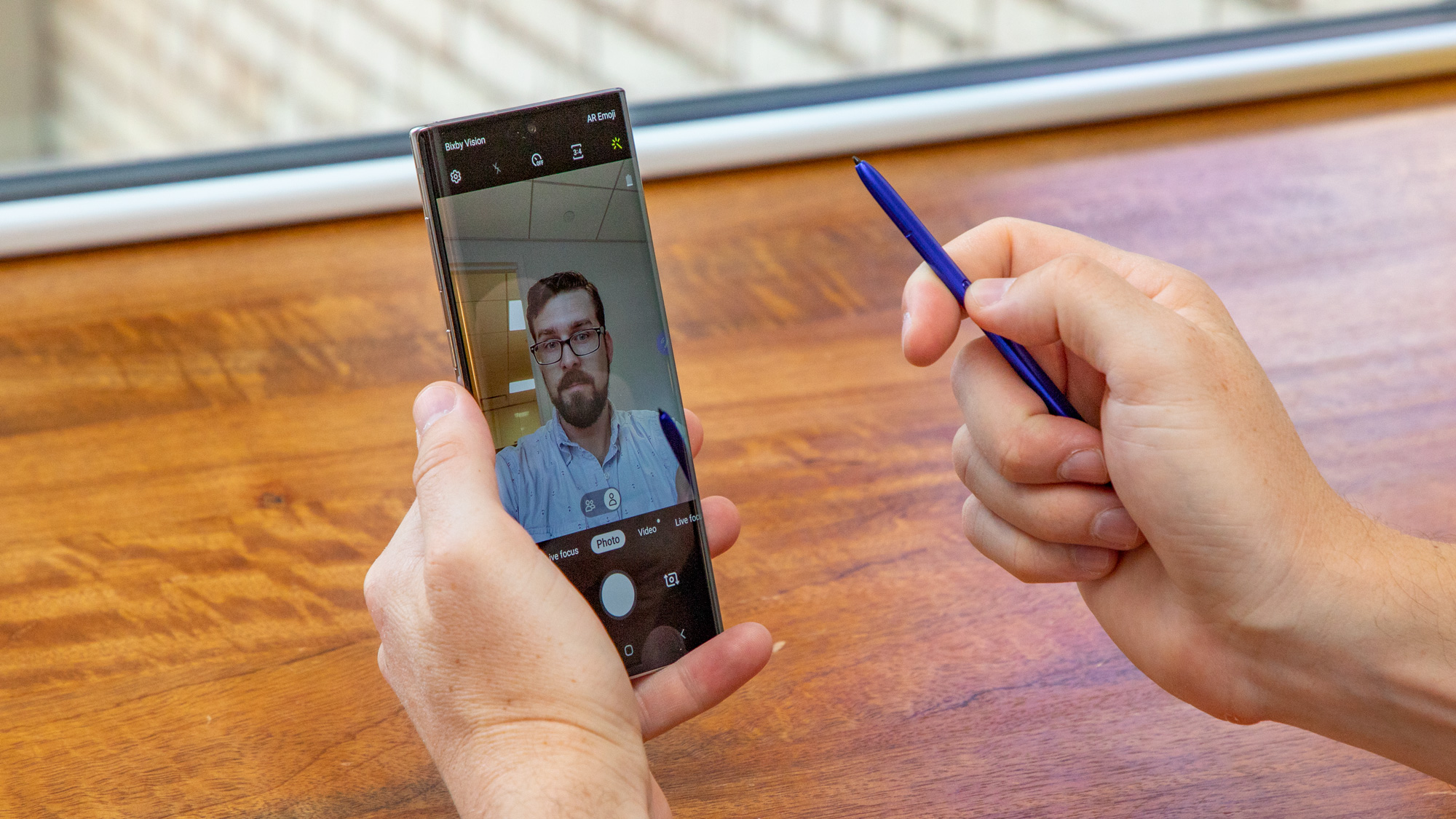
Gesture controls with the Samsung Galaxy Note 10's S Pen.
So are they equally useful?
It’s pretty clear that the Samsung Galaxy Note 10’s S Pen operates better than the stylus on the Moto G Stylus – you get what you pay for. The Samsung costs $949 / £869 / AU$1,499, while Motorola's phone it set to cost $299 (around £230, AU$440).
So what functionality do you actually miss out on by opting for the Motorola?
The S Pen’s remote shutter is neat but not terribly useful unless you’ve gotten good at propping up your Note 10 on ledges or mounting it on a tripod. Likewise, the ‘gesture’ control promises the capability to switch songs or other simple action at a flick of the stylus, but its finicky recognition is less Harry Potter and more trial and error.
The best, reliable S Pen use case is the simple capability to take notes – it’s quite responsive and accurate to write and sketch on your device. This is especially helpful when the screen is locked and you just need to jot something down.
The Moto G Stylus isn’t quite as precise, as it’s got a larger nib, but is still rather accurate and neat to use with particular features. While the Moto Note app works fine for sketching, the stylus is also helpful for things like marking up photos or tasks that need dexterity, like painting over which parts of an image you want moving in Cinemagraph.
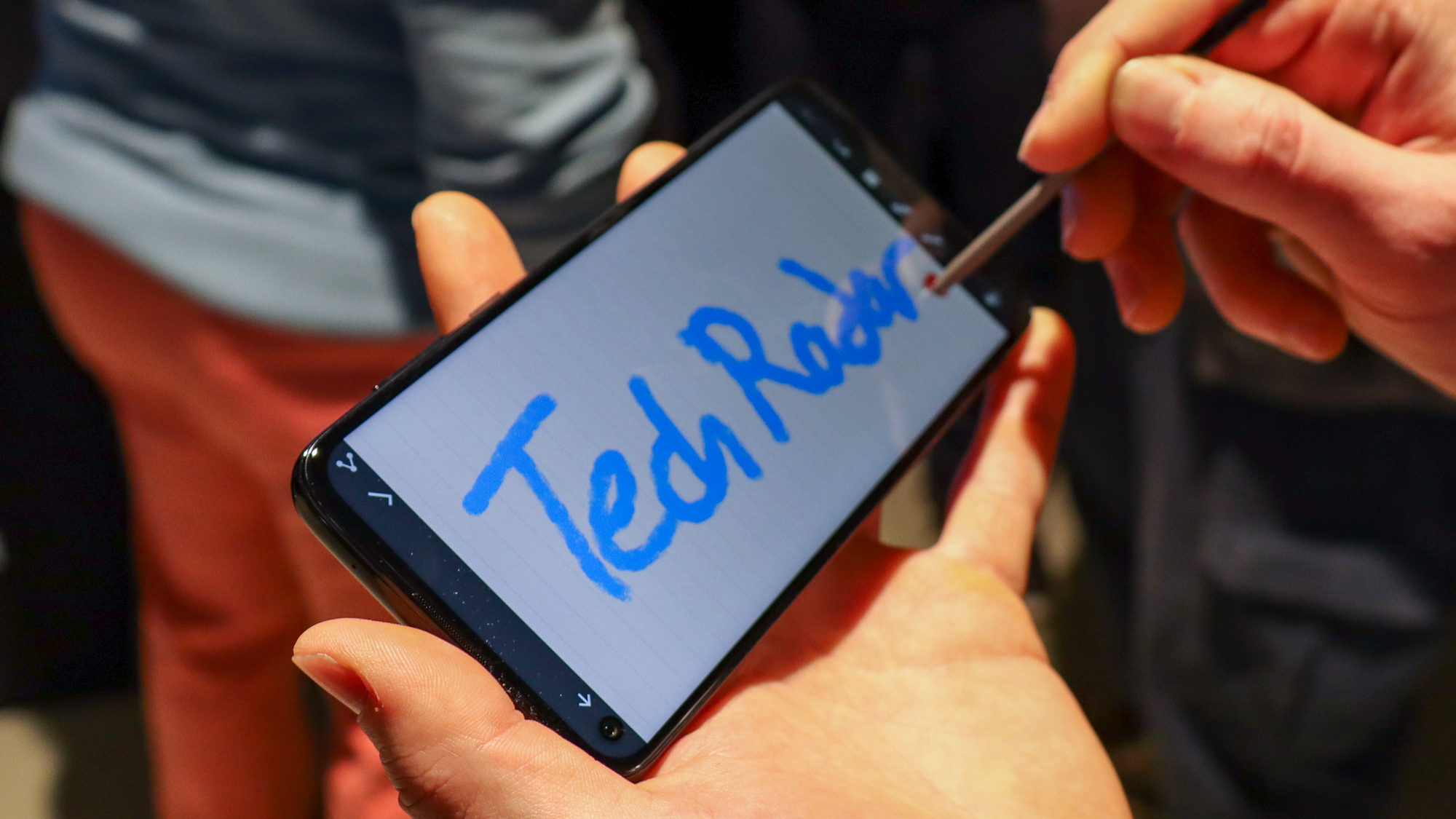
Moto G Stylus
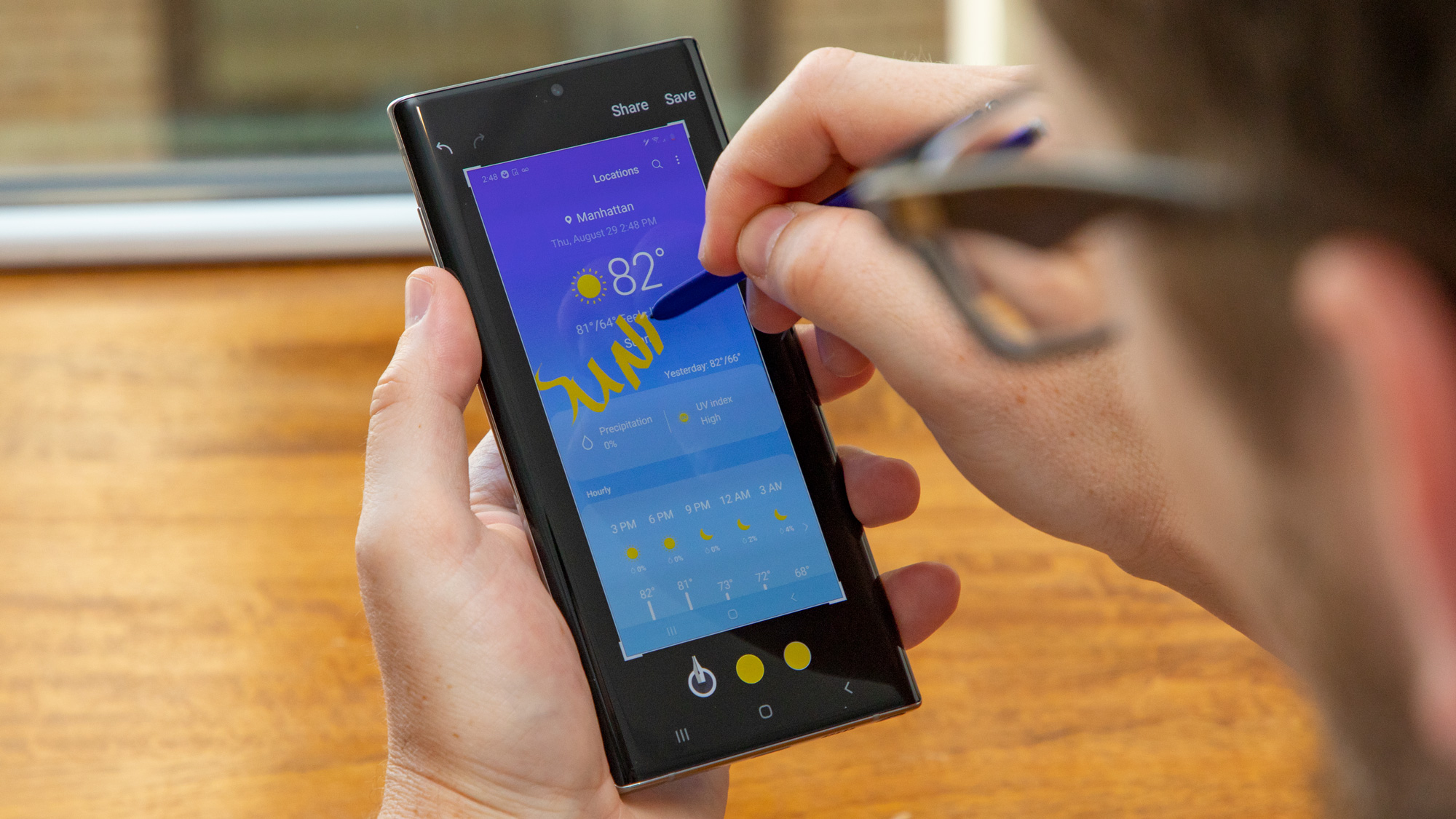
Samsung Galaxy Note 10
But is the Moto G Stylus like the Samsung Galaxy Note 10 in other ways?
Given the Moto G Stylus costs a third of the Note 10’s launch price, don’t expect their specs and features to be competitive - but overall, the G Stylus does decently for itself with an Full HD+ (2,300x1,080) display, Qualcomm Snapdragon 665 chipset and 4GB of RAM. It also has Android 10, which puts it on parity with Samsung’s phone, giving it the same software perks in the latest operating system version.
The G Stylus’ 4,000mAh battery exceeds the 3,500mAh capacity of the Note 10 - which is a good indicator of battery life, but other factors might not make that such a distinct advantage (we’ll know when we put the G Stylus through its paces).
For its price, the G Stylus is also pretty competitive in its cameras, with a 48MP main lens, 16MP ultra-wide, and a 2MP macro lens for up-close photography. While some might miss the telephoto lens, and the photo software isn’t as good as Samsung’s, that’s still a variable kit for a Motorola budget phone.
The G Stylus’ 16MP front-facing phone is tucked in a less-obtrusive punch-hole, taking a more obvious cue from the Note 10. But the Moto phone is less an imitator than a phone keyed more toward the tastes of the budget consumer. We've yet to properly test the Moto G Stylus for our full review, but we hope to long-term test out the phone in the near future.
In summary, the Moto G Stylus is a scrappy contender with a well-rounded set of cameras, specs, and a pared-down stylus that still provides the kind of functionality people remember from the Palm days. It’s not quite a Note 10, but it does seem a worthy stylus-packing phone for the budget crowd.
- The Note 10 has a place on our best phones list, but we still don'e know where the Moto G Stylus will land among the best cheap phones

David is now a mobile reporter at Cnet. Formerly Mobile Editor, US for TechRadar, he covered phones, tablets, and wearables. He still thinks the iPhone 4 is the best-looking smartphone ever made. He's most interested in technology, gaming and culture – and where they overlap and change our lives. His current beat explores how our on-the-go existence is affected by new gadgets, carrier coverage expansions, and corporate strategy shifts.